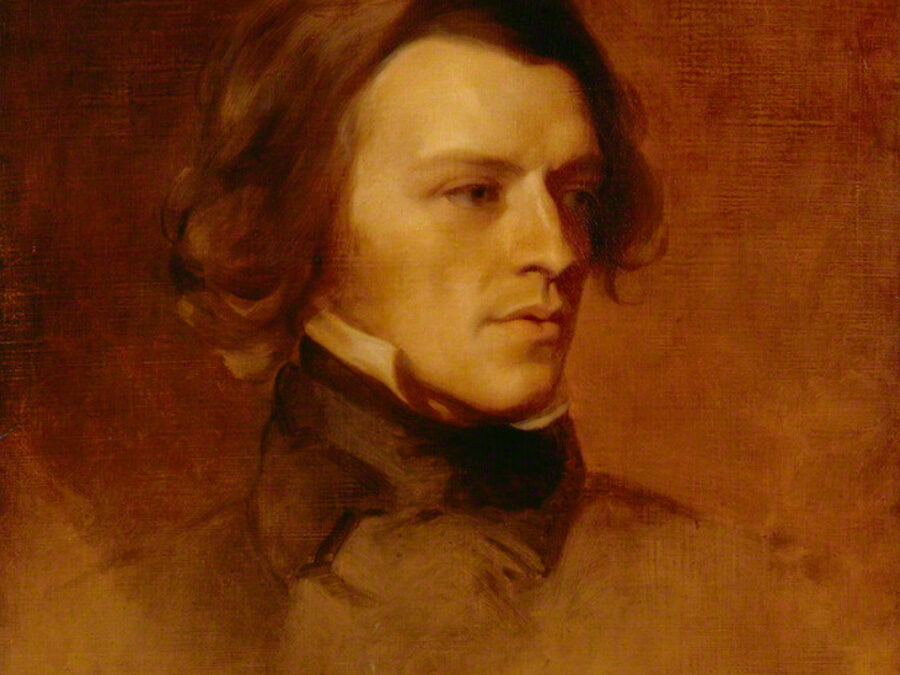 It’s one of Tennyson’s most popular shorter poems and is so sincere that readers believe Audley Court is a real place and search for it in the environs of Cambridge. The opening lines are among Tennyson’s most remembered. The Bull, the Fleece are...
It’s one of Tennyson’s most popular shorter poems and is so sincere that readers believe Audley Court is a real place and search for it in the environs of Cambridge. The opening lines are among Tennyson’s most remembered. The Bull, the Fleece are...
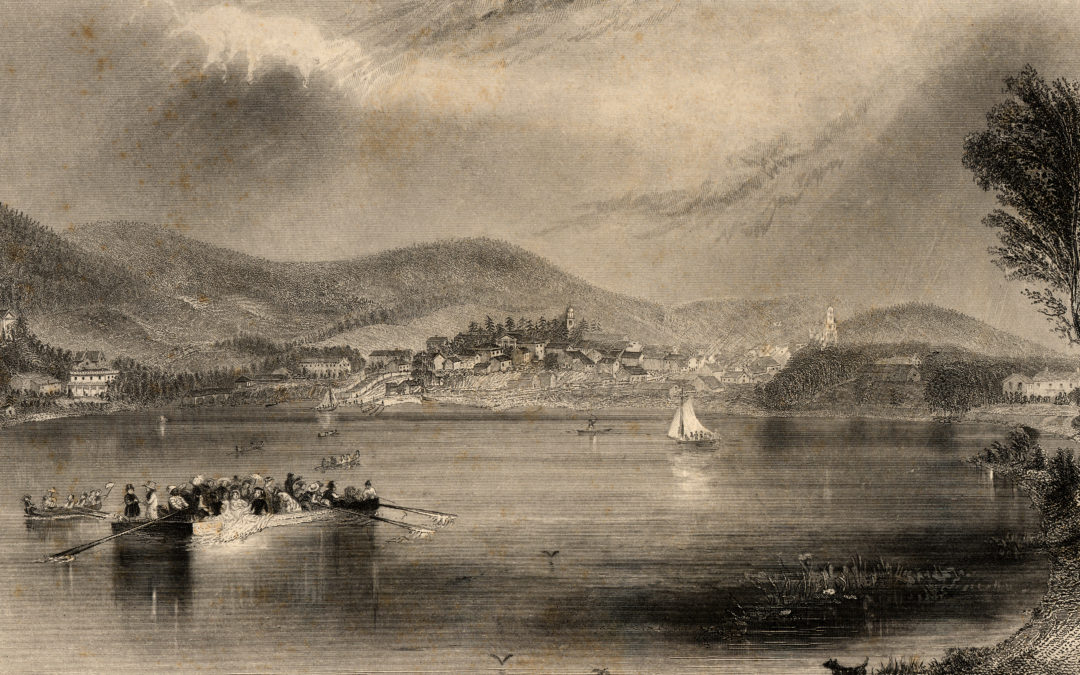 After living abroad for eight years, James Fenimore Cooper regarded Cooperstown’s townspeople as his social inferiors. The locals understood him to be a snob. The matter became contentious when the locals contested Cooper’s ownership of The Point, a small...
After living abroad for eight years, James Fenimore Cooper regarded Cooperstown’s townspeople as his social inferiors. The locals understood him to be a snob. The matter became contentious when the locals contested Cooper’s ownership of The Point, a small...
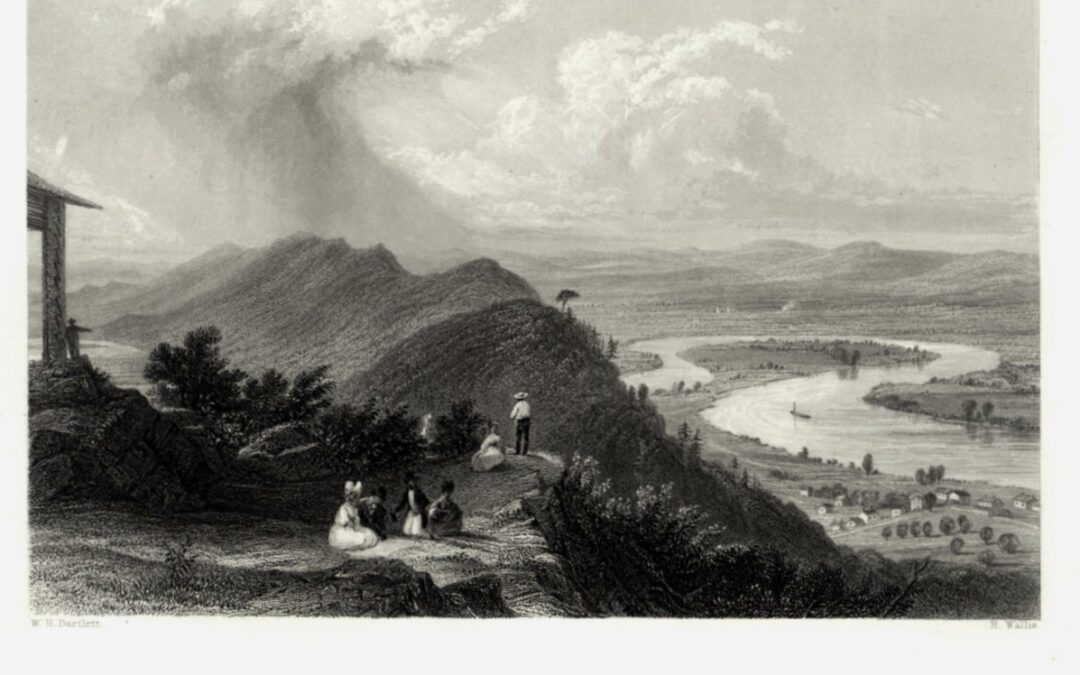 Bartlett’s View from Mount Holyoke was accompanied by a text by Nathaniel P. Willis. The view is a topographical landscape, and Willis asserted that this was “Probably the richest view in America, in point of cultivation and fertile beauty.” Unknown...
Bartlett’s View from Mount Holyoke was accompanied by a text by Nathaniel P. Willis. The view is a topographical landscape, and Willis asserted that this was “Probably the richest view in America, in point of cultivation and fertile beauty.” Unknown...
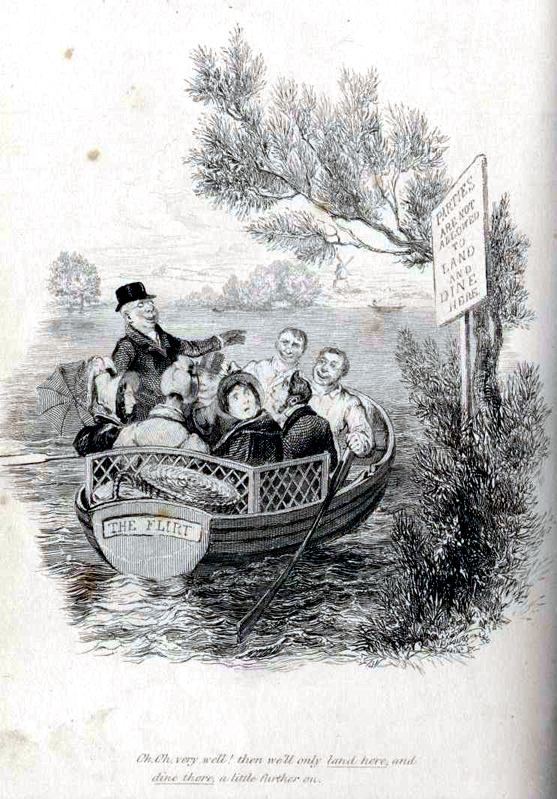 Seymour’s picnics are comic as in Unpacking for a Pic-Nic and “—A merry holiday party, forming a tolerable boat-load, and well provided with baskets of provisions, were rowing along the beautiful and picturesque banks that fringe the river’s side...
Seymour’s picnics are comic as in Unpacking for a Pic-Nic and “—A merry holiday party, forming a tolerable boat-load, and well provided with baskets of provisions, were rowing along the beautiful and picturesque banks that fringe the river’s side...
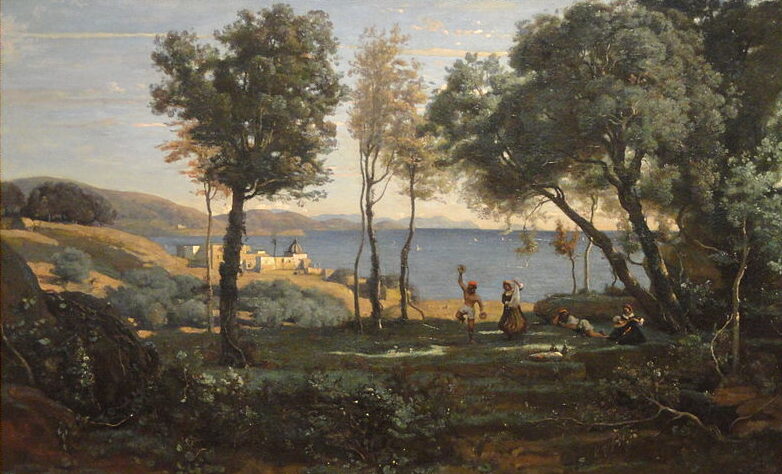 At the center of Corot’s View Near Naples is a summery rustic picnic in a grassy field above the Bay of Naples. Two couples have come for a holiday to eat, drink, sing, and dance. Despite the title’s location, the landscape is imaginary but based on...
At the center of Corot’s View Near Naples is a summery rustic picnic in a grassy field above the Bay of Naples. Two couples have come for a holiday to eat, drink, sing, and dance. Despite the title’s location, the landscape is imaginary but based on...
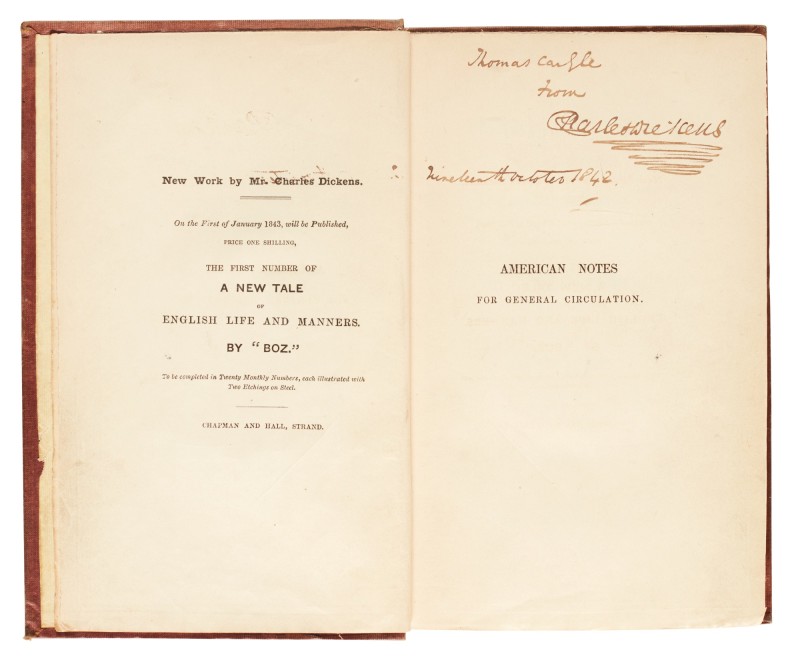 “A Jaunt to the Looking-Glass Prairie and Back” left Dickens with mixed feelings. The weather was hot and the journey tedious, but the picnic on Looking-Glass Prairie” was something Dickens wanted, mostly because he had been told that any sightseer...
“A Jaunt to the Looking-Glass Prairie and Back” left Dickens with mixed feelings. The weather was hot and the journey tedious, but the picnic on Looking-Glass Prairie” was something Dickens wanted, mostly because he had been told that any sightseer...
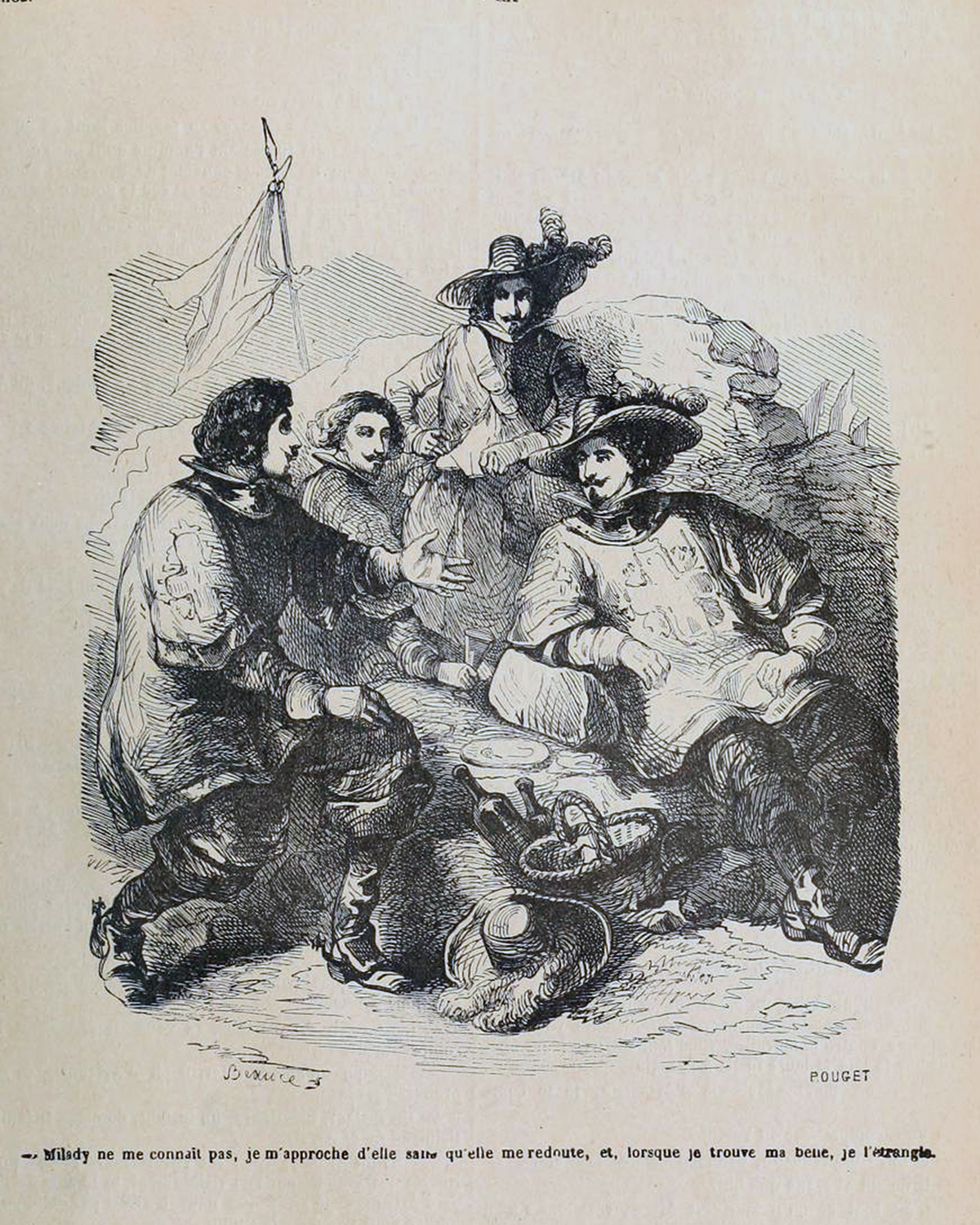 The battlefield déjeuner sur l’herbe in The Three Musketeers set a pattern for sardonic picnic humor. * Dumas and Auguste Maquet (his co-author) add comic relief to the severe Siege of La Rochelle when during a lull in the battle, Athos makes a bet that he,...
The battlefield déjeuner sur l’herbe in The Three Musketeers set a pattern for sardonic picnic humor. * Dumas and Auguste Maquet (his co-author) add comic relief to the severe Siege of La Rochelle when during a lull in the battle, Athos makes a bet that he,...
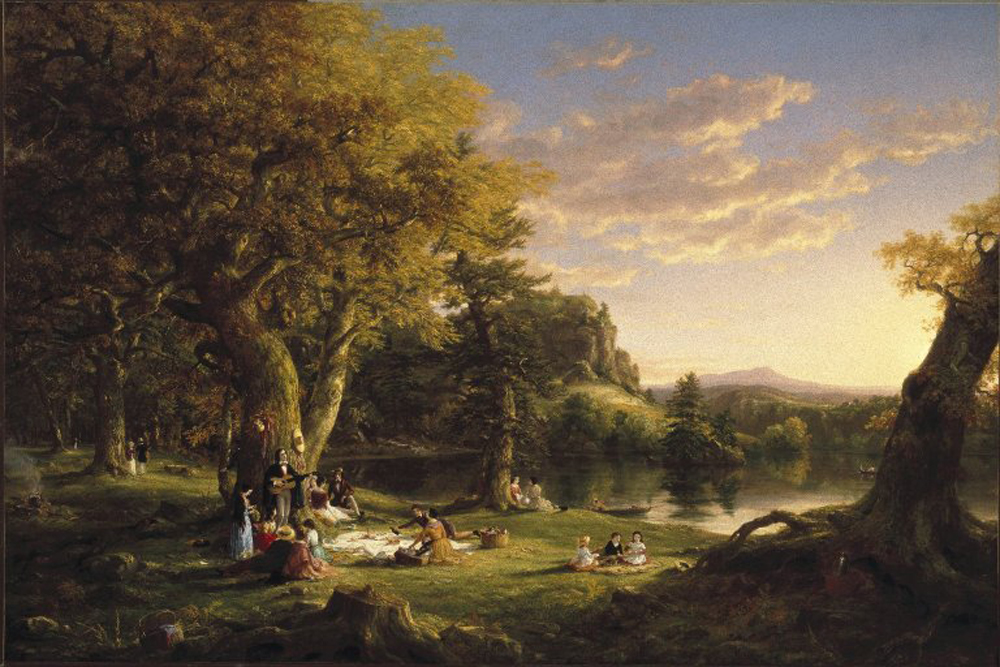 Cole’s Pic-Nic Party is a standout for its joie de vivre. It’s not just another of Cole’s numerous “sylvan” scenes,” which his hyperbolic biographer Louis Noble described as being “all American, wide, bright polished water,...
Cole’s Pic-Nic Party is a standout for its joie de vivre. It’s not just another of Cole’s numerous “sylvan” scenes,” which his hyperbolic biographer Louis Noble described as being “all American, wide, bright polished water,...
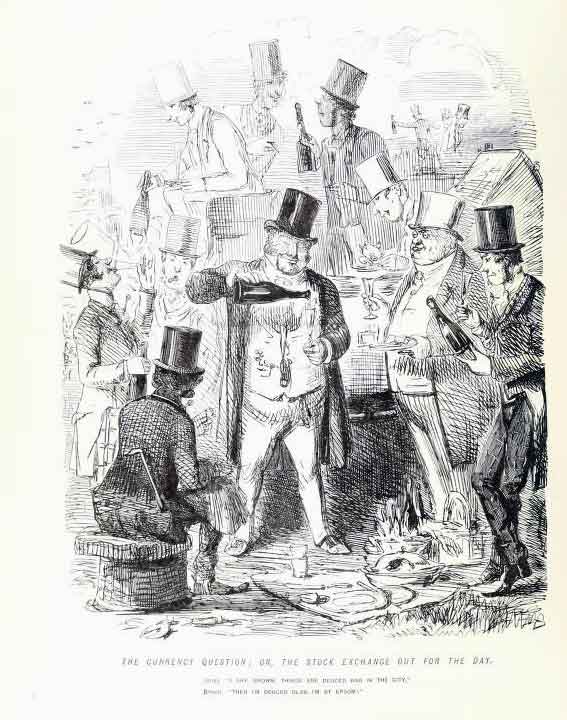 The London Stock Exchange’s reaction to a current financial panic is the butt of John Leech’s “The Currency Question, or The Exchange Out for a Day.” Leech implies picnicking in troubled times is laughable when buying and selling stocks is as...
The London Stock Exchange’s reaction to a current financial panic is the butt of John Leech’s “The Currency Question, or The Exchange Out for a Day.” Leech implies picnicking in troubled times is laughable when buying and selling stocks is as...
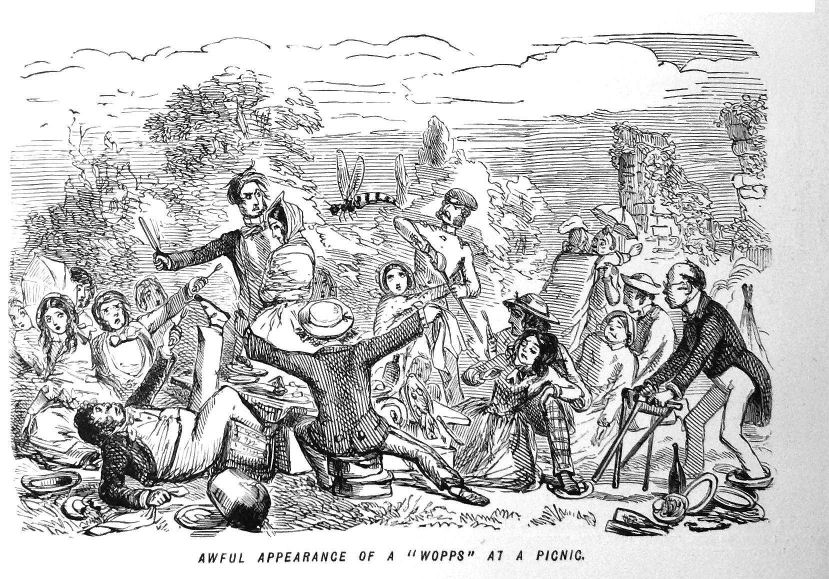 Knowing that any picnic might dissolve in chaos when attacked by a flying critter, readers of Punch, Britain’s premier satirical magazine, laughed at Leech’s mock tragedy. They might have also smiled patronizingly at the verbal pun “wopps,” the Cockney pronunciation...
Knowing that any picnic might dissolve in chaos when attacked by a flying critter, readers of Punch, Britain’s premier satirical magazine, laughed at Leech’s mock tragedy. They might have also smiled patronizingly at the verbal pun “wopps,” the Cockney pronunciation...











